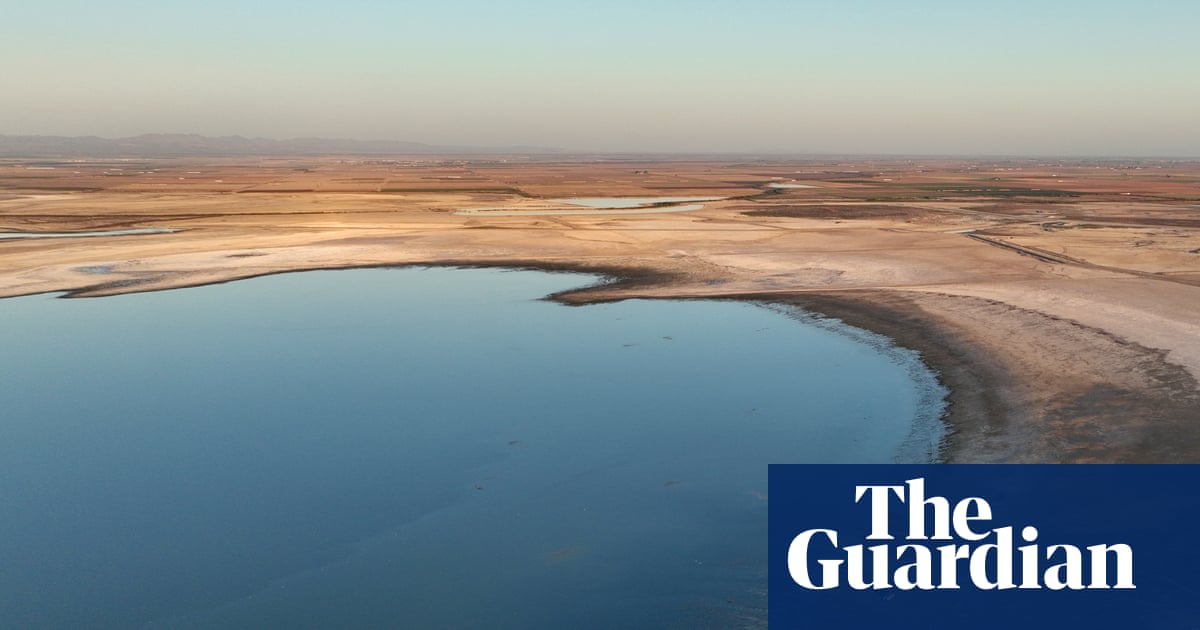
"Chemical-laden dust from southern California's drying Salton Sea is likely harming the lungs of people around the shrinking body of water, and the effects are especially pronounced in children, new peer-reviewed research from the University of California, Irvine, shows. A separate peer-reviewed study from the University of California, Riverside, also found the Salton Sea's contaminated dust seemed to alter lung microbiome, which could trigger pulmonary issues that have been reported around the lake."
"The dust has been found to travel more than 100 miles (160km), though the prevailing winds blow to the south-east. The drying of the Salton Sea is not only an environmental crisis but also a public health crisis, UC Irvine study co-author Jill Johnston said in a statement. Our study provides concrete evidence that children in surrounding communities are facing measurable harm to their lungs as a result of increased dust exposure."
"The new research around the Salton Sea is revealing a unique public health risk stemming from poorly regulated pesticide use on surrounding cropland, the climate crisis and poor water-resource management, advocates say. The over 340-sq-mile lake is receding as its primary source, the Colorado River, dries amid an ongoing drought and over-reliance for drinking or agricultural water. Large patches of the dried Salton Sea bed are now exposed, and those are contaminated from pesticide chemicals and nutrients in fertilizers."
Chemical-laden dust from the drying Salton Sea is harming the lungs of nearby residents, with particularly pronounced effects in children. Contaminated dust can travel more than 100 miles, though prevailing winds primarily blow southeast. Exposed lakebed patches contain pesticide residues, fertilizer nutrients, and naturally occurring heavy metals such as arsenic. The Salton Sea is receding as the Colorado River and regional water supplies dry amid ongoing drought, overuse, and poor water-resource management. Poorly regulated pesticide use on surrounding cropland compounds contamination. Health risks are greatest for largely low-income, Latino communities living near the lake, and altered lung microbiomes may trigger pulmonary problems.
Read at www.theguardian.com
Unable to calculate read time
Collection
[
|
...
]